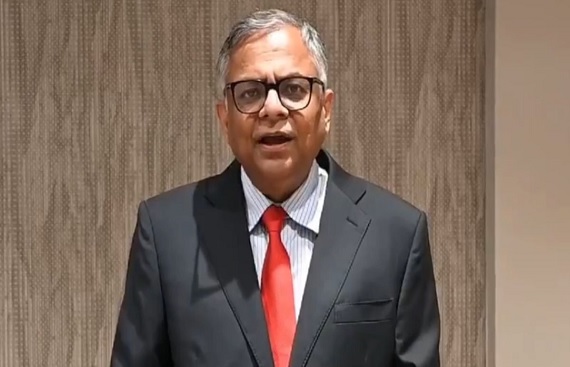Chandrasekaran Takes Charge of Air India Operations Following Ahmedabad Tragedy
By
siliconindia | Wednesday, 25 June 2025, 10:45:30 AM IST

- Tata Group Chairman N Chandrasekaran has taken direct control of Air India’s operations following the Ahmedabad crash that claimed 241 lives.
- He is overseeing safety reviews, government coordination, and employee morale, while CEO Campbell Wilson handles regulatory and internal matters.
- Air India announced Rs 1 crore compensation per victim and is setting up a trust fund to support affected families.
Tata Group Chairman N Chandrasekaran has stepped in to oversee the daily operations of Air India following the tragic air crash in Ahmedabad on June 12, which claimed 241 lives, including 12 crew members and 33 people on the ground. The incident is being described as one of the gravest crises faced by the Tata Group since its acquisition of the national carrier.
According to The Economic Times, Chandrasekaran is now focusing on key areas such as safety assessments, fleet maintenance, coordination with government authorities, and employee morale. His hands-on leadership is seen as essential in navigating this turbulent phase, with swift decisions needed amid intense public scrutiny and regulatory attention.
Air India CEO Campbell Wilson is working closely with Chandrasekaran, particularly on long-term strategic planning and regulatory matters. Wilson, who was en route to Paris during the time of the crash, returned immediately and has been spearheading internal reviews of the airline’s safety protocols. He is also handling interactions with key government bodies like the Directorate General of Civil Aviation (DGCA) and Aircraft Accident Investigation Bureau (AAIB).
Insiders suggest the crisis has led to a re-prioritization within the Tata Group, with Air India now receiving the highest level of attention. Chandrasekaran has reportedly been operating directly from the airline’s headquarters to ensure close oversight and rapid decision-making.
This move follows a longstanding Tata tradition of chairmen taking direct control during times of crisis. Past examples include J.R.D. Tata’s leadership after a major fire at Tata Steel in 1989, and Ratan Tata’s involvement in managing the Tata Finance fraud and the 26/11 Taj terror attacks. Chandrasekaran himself was recognized for his crisis management abilities during his leadership at TCS.
Air India has announced a compensation of Rs 1 crore for the families of each crash victim. Additionally, Chandrasekaran is in the process of finalizing a trust fund to support affected families, although it remains unclear if special provisions will be made for non-Indian nationals.
As the Tata Group works to restore public confidence and rebuild employee morale, unity and focused leadership are expected to be the cornerstone of Air India’s recovery.
Read More News :
Axiom Mission 4 Set to Launch Today, Marks Global Space Milestone



